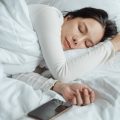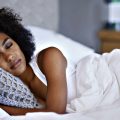Sleep is essential to our lives. It allows our bodies to rest mentally and regenerate some damage they accrued during the day. However, for some of us, having good enough sleep is elusive, and one of the culprits is sleep apnea.
What is Sleep Apnea?
Sleep apnea is a condition that causes an individual to stop breathing for a short period while in their sleep. Because of this, the brain doesn’t take enough oxygen, waking an individual up gasping and out of breath. Unfortunately, in many cases, people are unaware that they have sleep apnea and will just think it’s a normal part of their sleep cycle.
The worst thing about it is that sleep apnea sounds like snoring, making the people around the sleeping person suffering from it think it’s perfectly normal. In addition, sleep apnea can cause several complications:
- Poor immune function
- Mental health issues
- Memory loss
- Risk of heart failure.
Common treatments for this condition include medicine, breathing devices, and even surgery. However, there are also some lifestyle changes that we can make to avoid the risk of having sleep apnea and get better sleep at the same time.
Here are some of them.
Maintain a Healthy Weight
One of the most common recommendations doctors give to patients suffering from sleep apnea is to maintain a healthy weight. Obesity, in particular, can increase the obstruction of your airways and narrow the nasal passages, contributing to sleep apnea.
However, in some cases, even maintaining a healthy weight can eliminate sleep apnea itself. But there’s also a huge chance of sleep apnea returning if the patient regains weight.
Yoga
Regular exercise, especially yoga, can increase your energy levels, improve sleep, and strengthen your heart. It can also improve your respiratory system and even encourage oxygen flow, improving your sleep apnea. But how?
Sleep apnea is associated with decreased saturation of oxygen in our blood. That said, yoga includes breathing exercises that improve the oxygen flow in the blood, reducing your chances of waking up in the middle of the night gasping for air.
Alter Your Sleep Position
We all have our preferences when it comes to our sleep positions. However, if you’re suffering from sleep apnea, one thing you can do to improve its symptoms is to change your sleeping position.
Doctors recommend that the best sleeping position is sleeping sideways as it reduces sleep apnea severity and even reduces snoring. It can also help your spine alignment. However, it can put a lot of strain on your hips, shoulders, and spine. But this can be remedied with a good pillow. In addition, you can try using sleep aids.
There are many types of sleep aids available on the market today. Some of the most popular include:
- Prescription medications: These can be very effective in helping people to fall asleep and stay asleep. However, they can also have some serious side effects, so it is important to talk to your doctor before taking them.
- Herbal supplements: There are many herbal supplements that claim to help with sleep. However, there is little scientific evidence to support their use.
- Chamomile tea: Chamomile tea has long been used as a natural remedy for insomnia. It is thought to work by helping to relax the body and mind.
- Lavender oil: Lavender oil is another popular natural sleep aid. It is thought to work by helping to reduce anxiety and promote relaxation.
Sleeping on your stomach could also improve sleep apnea symptoms as it puts gravity on your side. Just make sure that you have a good pillow since sleeping on your stomach can put a strain on your neck. Also, if you have chronic back and joint pain or even acid reflux, you can sleep on your back with your head elevated quite a bit. This reduces aches and pains after you wake up.
If you prefer it this way, your healthcare provider can adjust your Continuous Positive Airway Pressure Machine to treat your sleep apnea as efficiently as possible.
Try a Dental Appliance
If you have mild to moderate sleep apnea, you can try an alternative to a CPAP, which is a dental appliance. One of these dental appliances is a mouthguard. The specially-made mouthguards can shift the lower part of your jaw, tightening the soft tissue and muscles at the back of your throat to prevent it from obstructing your sleep. That said, they are a good alternative to CPAP, which is much cheaper and less hassle to use.
Invest in the Right Pillow
When it comes to pillows, they come in a lot of shapes and sizes. Not just that, but they also come in a different firmness, loft, and even pressure. While there isn’t one that is specifically made for sleep apnea, there are pillows out there that are made specifically to cater to people using CPAP.
If you’re annoyed with having your CPAP mask dislodged because of your pillow, you can buy yourself a CPAP pillow. These CPAP pillows have indented areas on both edges of the pillow, which leaves a space for your mask, preventing it from being forced into the pillow and dislodged from your face.
Final Words
Sleep apnea is a condition that can affect a person’s sleep quality, which is very bad for our health. While there are a lot of remedies out there, like medication, surgery, and machines, there are also some things that we can do ourselves. By following the lifestyle changes we discussed above, not only will you reduce your chances of having sleep apnea, but you can also have a chance to eliminate it outright.





